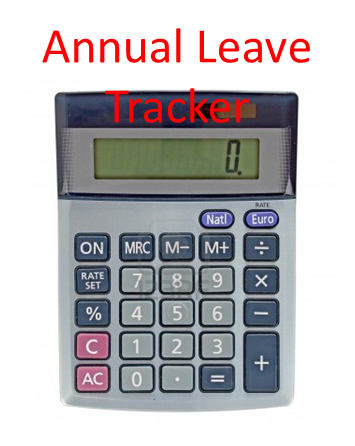Covid-19 news with a HR Twist
March 2020
COVID-19 Updates – Employers guide
Last Updated: 14:40 27/10/2020 Lay-off's during COVID-19 Pandemic The Government has brought in a [...]
October 2019
Bank Holiday Entitlements in Ireland
With the October Bank Holiday weekend fast approaching we thought you might find some information on Public Holidays and the relevant employer obligations/responsibilities around pay useful!
There are nine Public Holidays in Ireland each year - they are:
• New Year's Day (1 January)
•St. Patrick's Day (17 March)
•Easter Monday (Changes every year)
•The first Monday in May, June & August
•The last Monday in October
•Christmas Day (25 December)
•St. Stephen's Day (26 December)
Here is a breakdown of the statutory outline of Public Holiday Entitlements under Irish Employment Legislation:
Did you know that employees scheduled to work on a Public Holiday are entitled to an additional day's pay for the day?
For instance, let's take “Employee A” as an example – “Employee A” works on the day the Public Holiday falls - let's say “Employee A” is a retail store employee and is required to work on St. Stephen's day as it is the first day of the store's seasonal sale - On a normal working day “Employee A” earns €100.
This means that “Employee A” is entitled to receive the usual €100 for the hours worked on the Public Holiday as well as an additional €100 - So “Employee A” receives €200 for working on the Public Holiday. If there is any ambiguity in ascertaining what an additional day's pay should
equal the employer should look at the last day worked prior to the Public Holiday.
“Employee B” represents an employee who is normally scheduled to work on a day that a Public Holiday falls but is not required to work on that day (for example - an administrative assistant in a bank who typically works 09:00-17:00 Monday – Friday, who is not required to work on
Easter Monday).
“Employee B” should receive their normal day's pay for that day as well as not being required to work on the Public Holiday. On a normal working day “Employee B” receives €200. When a Public Holiday falls “Employee B” will not be required to work on this day as the business is closed. “Employee B” will still receive their normal day’s pay.
New Year's Day (1 January)
•St. Patrick's Day (17 March)
•Easter Monday (Changes every year)
•The first Monday in May, June & August
•The last Monday in October
•Christmas Day (25 December)
•St. Stephen's Day (26 December)
Here is a breakdown of the statutory outline of Public Holiday Entitlements under Irish Employment Legislation:
Did you know that employees scheduled to work on a Public Holiday are entitled to an additional day's pay for the day?
For instance, let's take “Employee A” as an example – “Employee A” works on the day the Public Holiday falls - let's say “Employee A” is a retail store employee and is required to work on St. Stephen's day as it is the first day of the store's seasonal sale - On a normal working day “Employee A” earns €100.
This means that “Employee A” is entitled to receive the usual €100 for the hours worked on the Public Holiday as well as an additional €100 - So “Employee A” receives €200 for working on the Public Holiday. If there is any ambiguity in ascertaining what an additional day's pay should
equal the employer should look at the last day worked prior to the Public Holiday.
“Employee B” represents an employee who is normally scheduled to work on a day that a Public Holiday falls but is not required to work on that day (for example - an administrative assistant in a bank who typically works 09:00-17:00 Monday – Friday, who is not required to work on
Easter Monday).
“Employee B” should receive their normal day's pay for that day as well as not being required to work on the Public Holiday. On a normal working day “Employee B” receives €200. When a Public Holiday falls “Employee B” will not be required to work on this day as the business is closed. “Employee B” will still receive their normal day’s pay.
 The one that can cause the most confusion is the case of “Employee C” –
Employees who are not normally scheduled to work on the Public Holiday will receive one-fifth of their normal weekly pay for the day. “Employee C”, for instance, works Wednesday – Friday and receives €100 per day in remuneration. If a Public Holiday falls on a Tuesday, even though “Employee C” never works that day he or she still has the right to benefit from the Public
Holiday in some way.
“Employee C” is still entitled to be paid a certain amount as a benefit for the Public Holiday (one-fifth of their normal weekly pay). If this employee earns €300 per three day week (Wednesday-Friday) they are entitled to earn an additional €60 during a week where a Public Holiday falls on a Monday or Tuesday.
The above rules will apply for all Public Holidays.
The one that can cause the most confusion is the case of “Employee C” –
Employees who are not normally scheduled to work on the Public Holiday will receive one-fifth of their normal weekly pay for the day. “Employee C”, for instance, works Wednesday – Friday and receives €100 per day in remuneration. If a Public Holiday falls on a Tuesday, even though “Employee C” never works that day he or she still has the right to benefit from the Public
Holiday in some way.
“Employee C” is still entitled to be paid a certain amount as a benefit for the Public Holiday (one-fifth of their normal weekly pay). If this employee earns €300 per three day week (Wednesday-Friday) they are entitled to earn an additional €60 during a week where a Public Holiday falls on a Monday or Tuesday.
The above rules will apply for all Public Holidays.
August 2019
Parental Leave – Employer Advice
Parental Leave Entitlement Changes Regarding Parental Leave Parental Leave allows parents to take unpaid leave from their [...]
December 2018
Annual Leave Entitlements Guide Ireland
Annual leave is paid time off work that employees are granted by their employers - it can be used for whatever the employee wishes. It is important for employees to recharge the batteries and annual leave helps maintain a motivated and productive workforce. It is essential to note that the employer is statutorily obliged to provide a certain amount of annual leave to his or her employees. An employer can, of course, provide more leave than he or she is obliged to give – if an employer offers more leave to employees with long service histories or employees who exceed targets, for instance, this policy should be clearly defined and should be applied fairly across the board. Regardless of the employee’s status or length of their service everyone is entitled to annual leave. All time worked is eligible for paid holidays.
Here is an easy guide to assist employers in working out what leave should be allocated to each employee:

There are three methods used to work out leave entitlements:
a) The most common method used is: 4 working weeks in a leave year during which the employee works a minimum of 1,365 hours (Unless the employee has changed employment during that year). b) 1/3 of the employee’s working week per calendar month of at least 117 working hours (Eg: 1.67 * 12 = 20 days) c) 8% (.08) of the hours worked by the employee in the leave year (the total is not to exceed 4 working weeks) In some instances an employee’s leave could be worked out using more than one of the approaches listed above – where this is the case all applicable methods should be calculated and the employee shall be entitled to the highest result. Remember - the maximum statutory annual leave entitlement is four of his / her normal working weeks.How to calculate an employee’s annual leave pay:
Not everyone works a 9-5 office job and not all employees earn the same gross figure on a weekly basis so here is a guide on how to determine holiday pay due to various categories of employees: (a) If the employee’s pay is calculated by a fixed rate or a salary then the figure due to the employee per week of paid annual leave is equivalent to the amount he or she received for the normal weekly working hours last worked - This payment includes any regular bonus or allowance (that isn’t based on work completed) - it excludes any overtime pay. 
August 2018
Increase In The National Minimum Wage – Employer Advice
Increase In The National Minimum Wage Changes Regarding The National Minimum Wage [...]
‘Low Hour’ & ‘Zero Hour’ Contracts – Employer Advice
'Low Hour' & 'Zero Hour' Contracts Changes Regarding These Types of Contracts The Employment (Miscellaneous Provisions) Bill [...]
GDPR
General Data Protection Regulation [GDPR] Glossary of Terms and Definitions in relation to GDPR Binding Corporate [...]
October 2017
Risk Assessment for Pregnant Employees
As soon as an employer has received written notification of pregnancy from an employee, a risk assessment should be carried out.
The employee should give their employer a copy of any advice that their Doctor/Midwife has given them if it could have an impact on the pregnant employee’s risk assessment. The risk assessment’s purpose is to evaluate the employee’s ability to carry out their role and to identify any possible risks to mother and baby.
 Examples of some risks are:
Examples of some risks are:
- Standing/sitting for long periods
- Lifting/carrying heavy loads
- Threat of violence in the workplace
- Long working hours
- Excessively noisy workplaces
- Exposure to toxic substances
- Work-related stress
- Workstations and posture
 The Department of Social Protection pays Health and Safety Benefit after the first three weeks of Health and Safety Leave has passed. In order to qualify for Health and Safety Benefit, you must meet certain criteria and PRSI contribution conditions. Employees are still considered to be in employment so they continue to accumulate their annual leave entitlement. However, they are not entitled to payment for public holidays that occur while on Health and Safety Leave.
It is essential that the employer regularly monitors and reviews any assessment made to take account of the possible risks that may occur at the different stages of pregnancy.
The Department of Social Protection pays Health and Safety Benefit after the first three weeks of Health and Safety Leave has passed. In order to qualify for Health and Safety Benefit, you must meet certain criteria and PRSI contribution conditions. Employees are still considered to be in employment so they continue to accumulate their annual leave entitlement. However, they are not entitled to payment for public holidays that occur while on Health and Safety Leave.
It is essential that the employer regularly monitors and reviews any assessment made to take account of the possible risks that may occur at the different stages of pregnancy.

September 2017
September HR News Update
September 2017 - Employee Payout Claims Failure by employer to investigate complaints led to successful constructive dismissal [...]
August 2017
Employer Responsibilities – Contracts of Employment
Employers are legally obliged to provide workers with a written statement of the employment agreement between the two parties (the contract) within two months of the employee commencing employment.
Having a contract in place can offer protection to the Company in the event of a dispute or issue arising. This document can help to safeguard the Company in the event of employee litigation or Labour Court hearings.
 Reasons why you, as an Employer, need to issue a Contract of Employment:
Reasons why you, as an Employer, need to issue a Contract of Employment:
-
It outlines the requirements of the position and the conditions the person is meant to work against.
-
It addresses the legal requirements against which all employees are protected today.
-
In the event of poor performance the employer can refer to the contract and all conditions contained therein, and manage the employee against such conditions.
-
The use of probationary periods is fundamental for all new employees.
An example of what an employee’s rights are in the event of not having a contract in place:
If the employer fails to give written details of the terms of employment, the employee can bring a complaint to a Rights Commissioner. The employee must make the complaint when in employment or within 6 months of leaving employment.

Legal Requirements:
-
The Terms of Employment (Information) Acts 1994 and 2001 provide that an employer is obliged to provide an employee with a written statement of terms of employment within the first two months of the commencement of employment.
The statement of terms must include the following information:
- (a) the full name of employer and employee
- (b) the address of the employer
- (c) the place of work
- (d) the title of job or nature of work
- (e) the date of commencement of employment
- (f) in the case of a temporary contract of employment, the expected duration of the contract or, if the contract of employment is for a fixed term, the date on which the contract expires,
- (g) the rate of pay or method of calculation of pay and the pay reference period for the purposes of the National Minium Wage Act, 2000
- (h) that the employee may, under section 23 of the National Minimum Wage Act, 2000, request from the employer a written statement of the employee’s average hourly rate of pay for any pay reference period as provided in that section.
- (i) pay intervals
- (j) the terms of conditions relating to hours of work (including information on overtime and entitlements to rest breaks and rest periods as per the Organisation of Working Time Act)
- (k) terms or conditions relating to paid leave (other than sick leave)
- (l) terms and conditions relating to sick/injury leave and sick pay and pensions and pension schemes
- (m) notice which the employee is entitled to receive and obliged to give
- (n) reference to any collective agreements which directly affect the terms and conditions of the employee’s employment.
 In the case of the particulars noted at (g) (h) (i) (j) (k), (l) and (m) above, the employer, as an alternative to providing all the details in the statement, may use the statement to refer the employee to certain other documents containing the particulars, provided such documents are reasonably accessible to the employee in his/her employment.
In the case of the particulars noted at (g) (h) (i) (j) (k), (l) and (m) above, the employer, as an alternative to providing all the details in the statement, may use the statement to refer the employee to certain other documents containing the particulars, provided such documents are reasonably accessible to the employee in his/her employment.
The statement of terms must indicate the reference period being used by the employer for the purposes of the calculation of the employee's entitlements under the Minimum Wage Act, 2000. (Under that Act the employer may calculate the employee's minimum wage entitlement over a reference period that is no less than one week and no greater than one month).
The statement of terms must also inform the employee that he/she has the right to ask the employer for a written statement of his/her average hourly rate of pay for any reference period (except the current reference period) in the 12 months prior to the date of the employee’s request.
An Employee Working Abroad is also entitled to details of the following:
-
The period of employment outside the State
-
The currency in which they will be paid
-
Any other benefits-in-kind or cash that will be provided
-
The terms and conditions applicable on the employee's return home
Here are examples of some further terms and conditions of employment that are not required by law but are highly recommended:
-
Probationary Period and Probation Policy
-
Hours of work / additional hours / overtime / shift liability / weekend liability / night work liability / public holiday liability
-
Performance related bonuses
-
Absence Management
-
Medical examination
-
Holidays, public holidays, all other forms of leave
-
Grievance and Disciplinary Procedures
-
Confidentiality
-
Company Property
-
Phone and Mobile Phone Usage
-
Right to Inspect / Search
-
Drugs & Alcohol Policy / Right to Test for Intoxicants
-
Retirement
-
Company Rules and Regulations
-
Bullying and Harassment / Respect and Dignity at Work
-
Internet, Email & Social Media Usage
-
Use of Company Vehicles
-
Suspension without pay
-
Break and rest periods / exemption provision for employer for recording breaks
-
Return of company property

Have you heard of NERA?
The National Employment Rights Authority (NERA) delivers unprejudiced information on employment rights legislation to employers and employees in Ireland. NERA is charged with monitoring the employment rights of employees within the country. NERA inspectors perform various checks around the country and investigate suspected breaches of employment rights – it is important to bear in mind that a significant number of these inspection are unannounced. If NERA finds that an employer is not complying with employment rights legislation inspectors will seek reparation from the employer on behalf of the employee. In certain circumstances prosecutions against the employer may result.
NERA has the power to chase awards made by the Labour Court, the Rights Commissioner or the Employment Appeals Tribunal.
In order to pass a NERA inspection; employers must have provided their employees with clarity on the terms and conditions of their employment.

July 2017
Drugs and Alcohol Policy in the Workplace
Employees attending for work under the influence of intoxicants It is important that as an employer, you are [...]
GDPR Regulation (EU) 2016/679
REGULATION (EU) 2016/679 OF THE EUROPEAN PARLIAMENT AND OF THE COUNCIL of 27 April 2016 on the protection of [...]
Part 3 – GDPR Preparation and Record Keeping
GDPR Preparation and Record Keeping Previously we mentioned that the new EU General Data Protection Regulation (GDPR) is [...]
Part 2 – Key Impacts of GDPR
Key Impacts of the General Data Protection Regulation (GDPR) As mentioned in our introductory post, the new EU [...]











